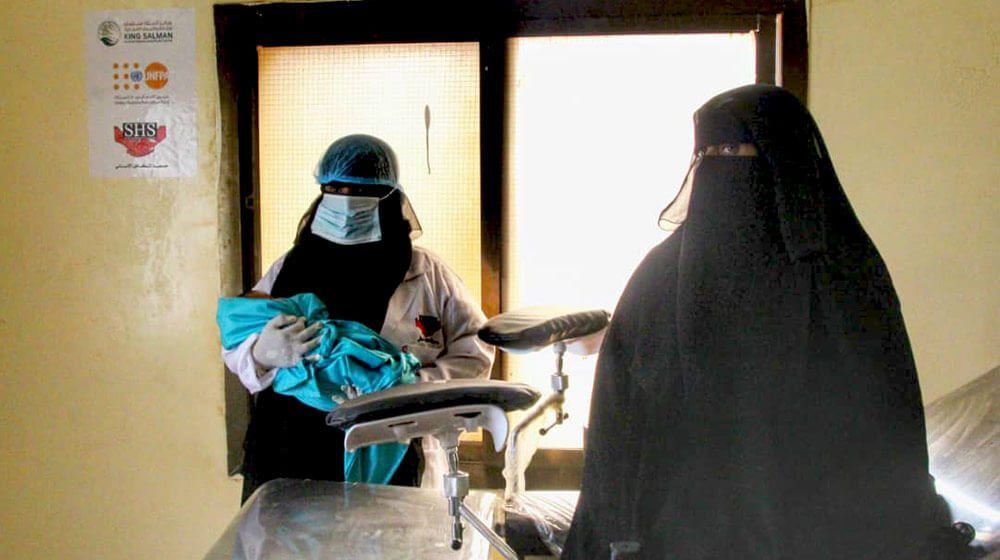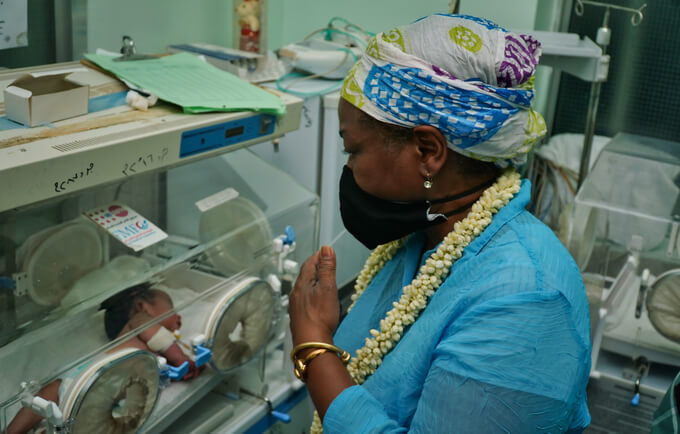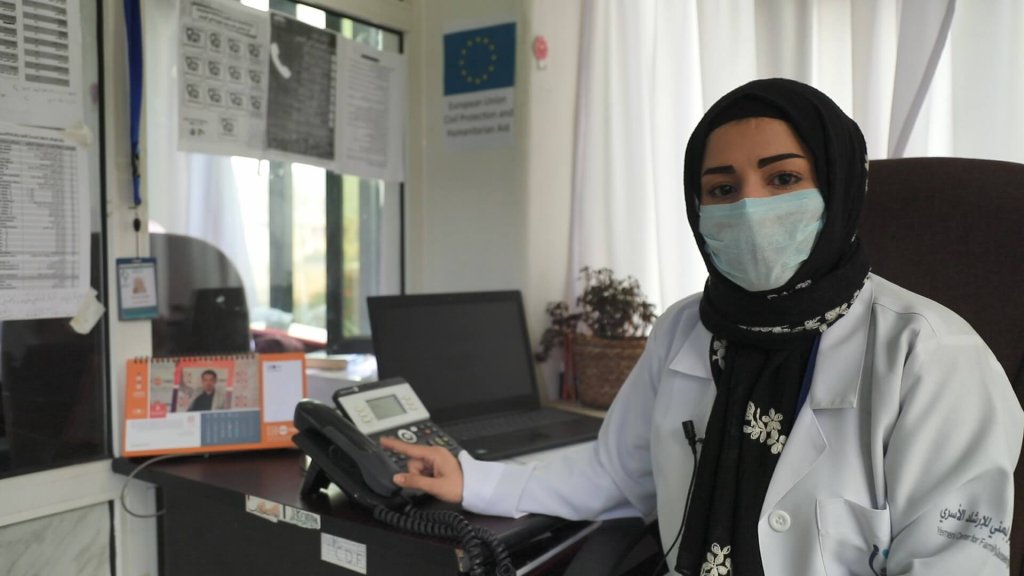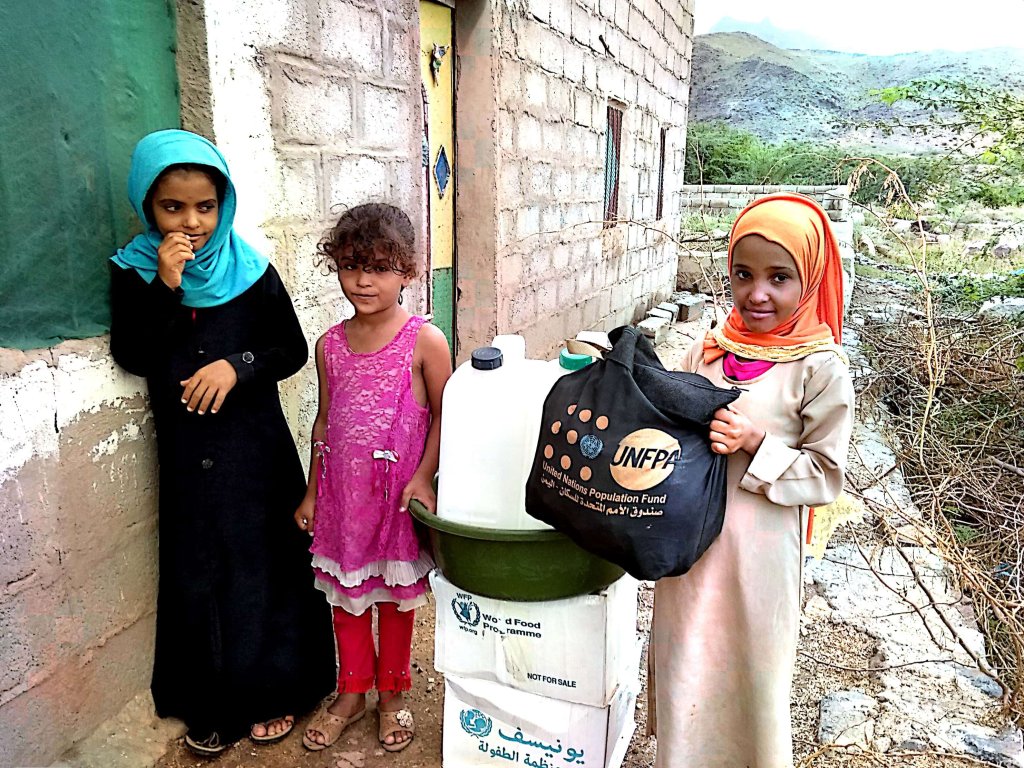On the Brink of Famine in the World’s Worst Humanitarian Crisis

In the world’s worst humanitarian crisis, women and girls shoulder the greatest burden. They are more likely to have become migrants. They are caregivers for COVID-19 patients. Women and girls are at greater risk of violence, including child marriage. And, they are less and less able to get the care they need. And now, they are more likely to die of hunger.
Famine is imminent in Yemen, brought on by climate change, a collapsing economy, and years of conflict. Starvation, however, is already widespread, and its presence has had a devastating impact on the sexual and reproductive health of women and girls.
Pregnant Women and Newborns

There are over 1.2 malnourished pregnant women in Yemen, according to UNFPA, and without immediate aid, this number could soon double. UNFPA is providing pregnant women with vitamins where possible. However, the healthcare system is fragmented and only 50% of health facilities are functioning. Of those, just 1 in 5 provide maternal and child health services.
Mothers who do not have enough to eat and lack the proper nutrients are more likely to have childbirth complications. These include excessive bleeding, potentially fatal high blood pressure, and early delivery. They are also more likely to have a miscarriage or stillbirth, due to the poor development of the fetus. Mothers are also less likely to produce breastmilk, which may be the only food families can afford for their baby. The newborns of malnourished mothers are more likely to be born early and to have a low birth weight. Both of these situations can result in poor physical and mental development and a greater risk of newborn death and injury. Already, one woman and six newborns die every two hours in Yemen. Many of these tragic deaths can be attributed, in part, to the conflict’s strain on the food supply and the health care system.
Survivors of Violence

The combined stress of COVID-19, the ongoing conflict, and famine have led to a rise in domestic violence in Yemen. The majority of survivors are women and children. Being a survivor of violence can lead to depression, PTSD, and other mental health disorders. UNFPA estimates that 1 in 5 Yemeni people suffer from a mental health disorder and that many cannot get care. While providing families with adequate access to food would not solve the mental health crisis in Yemen, it would alleviate some of the stress families are facing.
The conflict has displaced over 4 million people. Most of these migrants are women and children, who have no idea where their next meal will come from or where the nearest clinic is located. Women and girls on the move are much more vulnerable to sexual violence and exploitation, both as a tactic of conflict and as a result of greater interaction with strangers. Women and girls may even resort to exchanging sexual favors for food, shelter, or other necessary supplies, like period products.
Girls

Girls, specifically, are more likely to be married off by their families. Some families view child marriage as a way to provide for their daughters, to lessen the economic burden on their families, and to protect their daughters from violence. However, child marriage is a dangerous human rights violation. Child brides are far more likely than their unmarried peers to face sexual, physical, and emotional violence and early pregnancy.
Further, because there is a lack of healthcare facilities that cater to women, family planning resources are harder to access. This leaves women and girls less able to decide if, when, and with whom to have children. Ultimately, unintended pregnancy can lead to a downward spiral of malnourishment during pregnancy, complications during childbirth, and mothers and children with severe health issues.
Women and girls have not caused this war, but they have faced the consequences since the day it began. UNFPA has been working tirelessly to provide care in the face of overwhelming need. Currently, UNFPA is the only organization providing sexual and reproductive health care in Yemen, but with famine on the horizon, this could become more difficult. The agency is working closely with the World Food Program and UNICEF to provide complete care to families. This includes clean water, food staples, children’s clothing, vitamins, personal care supplies, and period products.
-Dana Kirkegaard